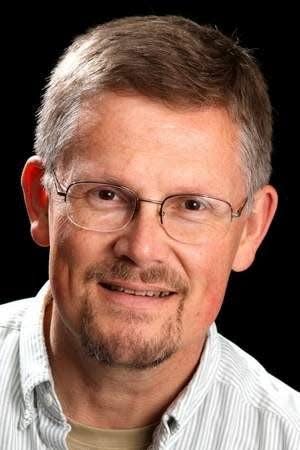Faith Works: Like sharing the Gospel, hearing the good news of D-Day brought joy to many

The most prep time I ever put into a single sermon was for Sunday, June 5, 1994, which turns out to be 30 years ago. That sermon was weak, perhaps, on preaching the Gospel, but it did have the overt intention of tying the meaning of "gospel" and "good news" together.
What I was trying to communicate was how people felt when they heard about D-Day, then 50 years before. We had no one in the congregation I served at the time in Fairmont, West Virginia, who had landed in Normandy that day, but there were many still in that community who had been serving both overseas and "fighting the home front” in 1944.
Faith Works: USA TODAY Network Ohio's jail deaths project provides a reality check
So I went around speaking to now 70-, 80- and 90-year-olds, just trying to capture something of what they felt on hearing the news that the Allies had landed in Europe on June 6. I talked to a woman who had been young that day, with a boyfriend overseas, who thought "they'll be home soon." Not as soon as she hoped, but D-Day meant it would be sooner. Another woman working in a cafeteria downtown told of how the radio was brought out of the kitchen and set up on the counter, so all could hear the news. One lady told me about being called inside by her mother as she hung laundry out back: "You'd better hear this for yourself."
There were a number of men who had been serving in the Pacific, aboard Navy ships; each felt a surge of pride and a question: How soon will this bring more forces over to our theater of the war? Some heard it secondhand down in the engineering spaces from a runner off the bridge, some on their ship's intercom system rebroadcasting to the whole crew while under weigh. Other men and women were at work in defense industry in California, riveting armor onto bomber airframes or testing plexiglass canopies, and the news came along the line in bits and pieces, while the work went on. My Uncle Clair, reached on the phone in 1994, almost as deaf as my father but who didn't like wearing hearing aids, had trouble catching my question, but when he did, after explaining he was in New Guinea, sweating up a storm replacing engines in B-24s, bellowed "Well, we were damned glad to hear about it; let me tell you!"
I talked closer to home with men who had been aircrew on B-17s waiting on bases in northern England, all dimly aware of preparations in the south for invasion but all cloaked with secrecy. "Now it's come," they thought. "Soon we will be flying all the way to Berlin."
And perhaps most riveting was a lady in a nursing care wing of the hospital, whose English was still poor, born and raised in Holland, grew up a young woman in Southeast Asia, come to America with a man with a complex story of her journey from Florida to West Virginia. But on June 6, 1944, she was a Resistance member riding a trolley car in Rotterdam, when the story was whispered from one seat to the next: "The Allies have landed in France." Antje told me the tale whipped around the city, and as she walked home with a meager harvest of groceries, the German soldiers on every street corner seemed even more on edge, wary, tense.
Faith Works: Granville preacher's Wyandot mission work continues to inspire centuries later
She felt hope for the first time in a long while.
That, I tried to connect, is what hearing the Gospel, God's good news of grace, can and should be like for any of us. Those stories have also kept me tied to that day, June 6, 1944, ever since. All those I spoke to those weeks before the 50th anniversary are gone; I share their stories with you now so you might pass them along, too.
Jeff Gill is a writer, storyteller, and preacher in central Ohio; he’s always glad to hear new stories, especially about old things. Tell him a story at [email protected], or follow @Knapsack77 on Threads.
This article originally appeared on The Columbus Dispatch: Faith Works: Hearing the good news of D-Day not unlike a Gospel message